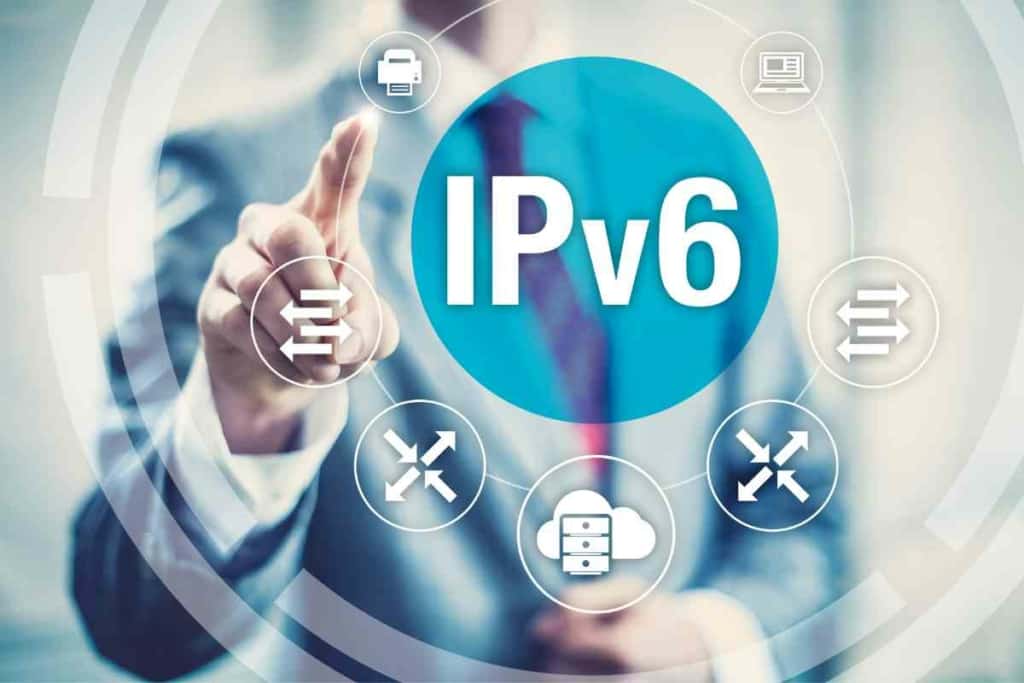Does Spectrum Internet Support IPv6? Here’s What You Need to Know
Are you curious about the advanced WiFi features offered by Spectrum Internet and how they can enhance your internet experience? Do you also wonder whether Spectrum supports the latest Internet Protocol, IPv6? If so, you’ve come to the right place. In this article, we’ll dive into the world of Spectrum’s Advanced WiFi, exploring its cutting-edge features and delving into the realm of IPv6.

Spectrum offers fast, reliable internet, but there’s a lot to know before you commit to an Internet provider. Let us help you do your research by checking out our articles on Spectrum’s reliability, why Spectrum is so expensive, whether or not Spectrum is good for gaming and more!
Does Spectrum Internet Support IPv6? Here’s What You Need to Know
Spectrum supports IPv6, the latest version of the Internet Protocol. IPv6 offers numerous advantages over its predecessor, IPv4, such as enhanced security and improved network performance.
In this article, we will explore the key differences between IPv6 and IPv4 in the context of Spectrum Internet. We’ll also provide insights on how to set up IPv6 with Spectrum, enabling customers to leverage its benefits effectively.
Key Takeaways:
- Spectrum Internet supports IPv6, enabling customers to harness the advantages of this modern protocol.
- Understanding the disparities between IPv6 and IPv4 in the context of Spectrum Internet is crucial for maximizing the benefits offered by this new protocol.
- Setting up IPv6 with Spectrum Internet is a straightforward process that empowers customers to enjoy enhanced security and network performance.
Understanding IPv6 and Spectrum Internet
IPv6 is an internet protocol supported by Spectrum Internet, offering a more extensive address space compared to its predecessor, IPv4. IPv6 addresses consist of 128 bits, in contrast to the 32-bit length of IPv4 addresses. This significant increase in address space allows IPv6 to accommodate a significantly larger number of devices connected to the internet.
A notable advantage of IPv6 is its capability to provide a larger number of unique IP addresses, which is especially important in today’s connected world with a growing multitude of internet-enabled devices. This aspect holds particular relevance for Spectrum Internet customers who often have multiple devices connected to their network simultaneously.
By supporting IPv6, Spectrum Internet enables its customers to benefit from improved performance and connectivity. IPv6 also contributes to reducing network congestion and enhancing the reliability of internet connections.
Setting up IPv6 with Spectrum Internet
To utilize IPv6 with Spectrum Internet, customers will need a router that supports this protocol. Spectrum offers a list of compatible routers on their website, and customers can seek assistance from their customer support team for guidance in setting up IPv6 on their network.
The process of setting up IPv6 with Spectrum involves the following steps:
- Ensure your router is IPv6 compatible. Check Spectrum’s website for a list of supported routers.
- Access your router’s settings. Consult your router’s manual or contact Spectrum’s customer support if needed.
- Enable IPv6 in your router’s settings.
- Save the changes and restart your router if necessary.
By following these simple steps, Spectrum customers can easily configure their network for IPv6, unlocking the benefits of enhanced security, network performance, and a larger number of connected devices.
Title: IPv6 vs IPv4: A Comparison for Spectrum Internet Users
Spectrum Internet provides support for both IPv6 and IPv4 protocols, each with its own characteristics and advantages. While IPv4 has been in use for many years and offers a limited number of unique addresses, IPv6 brings a larger address space and enhanced security features. In this article, we’ll explore the differences between IPv6 and IPv4 in the context of Spectrum Internet. Additionally, we’ll provide a step-by-step guide on how to set up IPv6 with Spectrum Internet to unlock its benefits.
The primary advantage of IPv6 lies in its expansive address space. With the increasing number of internet-connected devices, IPv6 resolves the issue of address depletion. Additionally, IPv6 incorporates built-in security features that make it more robust compared to IPv4.
Spectrum Internet presents two solutions for connecting with IPv6: native dual-stack and tunneled solutions. Dual-stack enables customers to utilize both IPv4 and IPv6 addresses simultaneously, ensuring access to websites and services available over either protocol. Meanwhile, tunneled solutions like 6rd or TSPC technologies facilitate connection compatibility.
Regarding IP addresses, Spectrum Internet assigns dynamic IPv4 addresses to customers, meaning the address may change over time. However, with IPv6, customers can have a static IP address, ensuring consistency for their devices.
Setting Up IPv6 with Spectrum Internet:

If you are a Spectrum Internet subscriber looking to set up IPv6, rest assured that Spectrum fully supports IPv6. By enabling IPv6, you can experience faster and more reliable internet connectivity, improved security, and efficient routing. Here is a step-by-step guide to help you set up IPv6 with Spectrum Internet:
- Check Router Compatibility: Verify that your router supports IPv6. Most modern routers do, but it’s wise to double-check. Consult your router’s manual or refer to the manufacturer’s specifications online.
- Enable IPv6 on Your Router: Access your router’s web interface and navigate to the IPv6 settings. The exact steps may vary based on your router model, so consult the manual or search for instructions online.
- Configure Router for DHCPv6: To utilize IPv6 with Spectrum Internet, configure your router to use DHCPv6. This protocol allows your router to obtain an IPv6 address from Spectrum’s DHCPv6 server. Configure the following settings:
- IPv6 Address: Obtain automatically
- IPv6 Prefix Length: 64
- DHCPv6 Client: Enable
- Verify IPv6 Connectivity: Once your router is configured for DHCPv6, check your IPv6 connectivity by visiting an IPv6-supported website like ipv6.google.com. If you can access the website successfully, your IPv6 connectivity is functioning properly.
Security Aspects of IPv6 in Spectrum Internet and Troubleshooting Tips
Introduction: Spectrum Internet supports IPv6, the latest version of the Internet Protocol, which offers enhanced security features compared to its predecessor, IPv4. In this section, we’ll explore the security aspects of IPv6 in Spectrum Internet, highlighting its secure design, firewall protection, privacy features, and the Security Shield provided by Spectrum. Additionally, we’ll provide troubleshooting tips for resolving IPv6-related issues that may arise with your Spectrum Internet connection.
Security Aspects of IPv6 in Spectrum Internet:
- Secure by Design: IPv6 was specifically designed with security in mind, incorporating various features that make it inherently more secure than IPv4. Notably, IPv6 includes built-in support for IPsec, ensuring end-to-end encryption and authentication for IP packets. This inherent security enhances the confidentiality and integrity of data transmitted over IPv6 in comparison to IPv4.
- Firewall Protection: Spectrum Internet provides a firewall that safeguards your network against unauthorized access. This firewall is designed to block incoming traffic that is not authorized by you. By effectively filtering and managing network traffic, the firewall protects your network from potential threats posed by hackers and malicious users.
- Privacy Protection: IPv6 integrates built-in privacy protection mechanisms. It utilizes temporary addresses that are generated dynamically, distinct from your permanent address. As a result, your online activities are less traceable, offering an enhanced level of privacy while using IPv6 in Spectrum Internet.
- Security Shield: Spectrum Internet offers a Security Shield to fortify the security of your devices. The Security Shield encompasses antivirus and antispyware software, as well as a firewall. This comprehensive security suite shields your devices from viruses, malware, and other online threats, ensuring a safer online experience.
Troubleshooting IPv6 Issues with Spectrum Internet: If you encounter any issues with IPv6 on your Spectrum Internet connection, follow these troubleshooting steps:
- Check Compatibility: Verify that both your router and modem support IPv6. If not, consider upgrading your equipment to enable IPv6 compatibility.
- Enable DHCPv6: Ensure that DHCPv6 is enabled on your router. DHCPv6 is responsible for assigning IPv6 addresses to devices on your network. Without enabling DHCPv6, devices may fail to connect to the IPv6 network.
- Restart Router and Modem: Try restarting your router and modem to resolve connectivity issues with IPv6. Sometimes, a simple restart can restore proper functionality.
- Contact Spectrum Customer Support: If the previous steps do not resolve the issue, reach out to Spectrum customer support for further assistance. Their experts can diagnose the problem and provide additional troubleshooting steps tailored to your specific situation.
Spectrum Internet supports IPv6, offering enhanced security compared to IPv4. With its secure design, firewall protection, privacy features, and the Security Shield, Spectrum prioritizes the security of your network and devices. In case of IPv6-related issues, following the troubleshooting tips outlined above can help you resolve problems and ensure a seamless internet experience with Spectrum.
Advanced WiFi Features and IPv6 in Spectrum Internet
Spectrum Advanced WiFi offers a range of advanced features to enhance your internet experience, including support for IPv6. IPv6 is the latest version of the Internet Protocol that enables faster and more secure internet connectivity.
In this section, we’ll explore the benefits of IPv6 in Spectrum Advanced WiFi and highlight additional advanced features provided by Spectrum.
Advanced WiFi Features and IPv6:
- IPv6 Support: Spectrum Advanced WiFi fully supports IPv6, allowing you to enjoy improved internet connectivity. IPv6 utilizes 128-bit addresses, providing a virtually unlimited number of unique addresses for devices to connect to the internet. With IPv6, you can experience faster and more secure connections.
- Benefits of IPv6: IPv6 offers several advantages over IPv4, including:
- Larger Address Space: IPv6 provides an extensive address space, ensuring there are enough unique addresses for all devices to connect to the internet.
- Improved Security: IPv6 incorporates built-in security features that help protect your devices from online threats.
- Faster Connectivity: IPv6 enables faster download and upload speeds, enhancing your overall internet experience.
Additional Advanced WiFi Features:
- Complete Coverage: Spectrum Advanced WiFi ensures complete coverage for your home WiFi network. It is designed to provide reliable connectivity for families and households with multiple devices.
- Total Home Coverage: With the Spectrum Advanced WiFi Router, you can enjoy fast and reliable connectivity in every room of your home. This comprehensive coverage eliminates dead zones.
- Personalization: Advanced In-Home WiFi allows you to personalize your WiFi network by customizing the network name (SSID) and password. This makes it easy to connect to your home network and ensures a personalized experience.

IPv6 and Spectrum Mobile
Spectrum Mobile, the mobile virtual network operator (MVNO) offered by Spectrum, also supports IPv6. IPv6 is the next generation of the Internet Protocol, providing a larger address space and improved performance.
Spectrum Mobile supports both IPv6 and IPv4 through dual stacking. This means that both protocols run concurrently at the network level, allowing customers to access services and content on both IPv4 and IPv6 networks.
To check if your device supports IPv6, you can visit the IPv6 test website. If your device is compatible, you’ll be able to access the website without any issues.
The Role of ISPs in IPv6 Implementation and IPv6 Support in Spectrum’s Services
Internet Service Providers (ISPs) play a vital role in the successful implementation of IPv6. They are responsible for upgrading their network infrastructure, allocating IPv6 addresses to customers, ensuring network security, and collaborating with other ISPs to ensure a smooth transition.
In this section, we’ll explore the ISP’s role in IPv6 implementation and highlight Spectrum’s support for IPv6 in its business services and internet speed offerings.
Understanding ISP’s Role in IPv6 Implementation:
- Network Infrastructure Upgrade: ISPs must upgrade their network infrastructure, including routers, switches, and other equipment, to support IPv6. This ensures compatibility and seamless connectivity for their customers.
- IPv6 Address Allocation: ISPs are responsible for allocating IPv6 addresses to their customers and configuring their networks to support IPv6. This involves assigning IPv6 addresses to devices and ensuring efficient routing within their networks.
- Network Security: ISPs must prioritize network security and implement measures to protect customer data. This includes securing the network infrastructure and ensuring that customers’ data is safeguarded during transmission over IPv6.
- Collaboration with Other ISPs: ISPs must collaborate with other network operators to ensure compatibility between their networks. This collaboration ensures smooth communication and connectivity between customers of different ISPs in the transition to IPv6.
IPv6 Support in Spectrum’s Business Services:
- IPv6 Support in Business Internet: Spectrum’s Business Internet service offers support for IPv6, allowing businesses to easily adopt IPv6 connectivity without compatibility concerns. IPv6 support is included in all of Spectrum’s Business Internet plans, providing flexibility for businesses of all sizes.
- Large Address Space: Spectrum’s Business Internet service provides a /56 prefix for IPv6 addresses, offering businesses a substantial number of addresses to accommodate multiple devices connected to the internet. This scalability is crucial for businesses with growing connectivity needs.
- Dual-Stack Support: Spectrum’s Business Internet service offers dual-stack support, allowing businesses to use both IPv6 and IPv4 protocols simultaneously. This ensures compatibility with services and content available on both IPv6 and IPv4 networks.
IPv6 and Spectrum’s Internet Speed:
- Spectrum’s Fast Download Speeds: Spectrum is known for offering some of the fastest download speeds in the industry, with plans offering up to 300 Mbps, 500 Mbps, and 1 Gbps. These speeds enable seamless streaming, online gaming, and quick file downloads.
- Testing Internet Speed: Customers can use speed test tools like Speedtest by Ookla to measure their Spectrum Internet connection’s speed. These tests assess download and upload speeds to ensure that the connection is performing optimally.
SPs play a crucial role in the successful implementation of IPv6, including upgrading network infrastructure, allocating IPv6 addresses, ensuring network security, and collaborating with other ISPs.
Spectrum’s Business Internet service offers support for IPv6, providing businesses with flexibility, scalability, and dual-stack compatibility. Additionally, Spectrum offers fast download speeds, ensuring a superior internet experience for its customers. By embracing IPv6 and Spectrum’s services, customers can enjoy enhanced connectivity and performance in the ever-evolving digital landscape.
IPv6 and Additional Features in Spectrum’s Services
Spectrum Internet supports IPv6, the latest version of the Internet Protocol, which offers additional features compared to IPv4. IPv6 brings increased IP address availability, enhanced security, and improved performance.
In this section, we’ll explore the benefits of IPv6 in Spectrum’s services, including improved security features, compatibility with Spectrum apps, and enhanced communication experiences.
IPv6 and Additional Features in Spectrum’s Services:
- Enhanced Security Features: With IPv6, Spectrum Internet provides improved security features, including support for IPSec. IPSec offers network-level authentication, data integrity, and confidentiality, bolstering the overall security of the network.
- Better Support for Mobile Devices: IPv6 offers better support for mobile devices, ensuring seamless connectivity and optimal performance for smartphones, tablets, and other mobile devices connected to Spectrum Internet.
- Compatibility with Spectrum Apps: Spectrum TV App and My Spectrum App are both compatible with IPv6. Users can enjoy the benefits of IPv6 while streaming content through the Spectrum TV App, which offers features like pausing and rewinding live TV. The My Spectrum App provides easy access to account information and bill payment, also compatible with IPv6.
- Spectrum One Communication App: Spectrum One, the all-in-one communications app, supports IPv6 as well. Users can make and receive calls, send and receive messages, and access voicemail, all from a single app. Designed to work seamlessly with Spectrum Internet, Spectrum One enhances the communication experience.
Spectrum Internet’s support for IPv6 brings additional features that enhance security, improve performance, and provide compatibility with Spectrum’s apps and services. IPv6 offers improved security features like IPSec, better support for mobile devices, and compatibility with the Spectrum TV App, My Spectrum App, and Spectrum One. By utilizing IPv6 in conjunction with Spectrum’s services, customers can enjoy a seamless and enhanced internet and communication experience.

Frequently Asked Questions
Does Spectrum offer support for IPv6?
Yes, Spectrum does offer support for IPv6. The company has been working on implementing IPv6 for several years now, and it is available to all customers who have compatible devices.
What is the process for enabling IPv6 on Spectrum internet?
Enabling IPv6 on Spectrum internet is a straightforward process. Customers can log in to their Spectrum account and navigate to the Network Settings section. From there, they can enable IPv6 and configure their devices to use it.
Are there any known issues with using IPv6 on Spectrum internet?
There are no known issues with using IPv6 on Spectrum internet. However, customers should ensure that their devices are compatible with IPv6 before enabling it. Some older devices may not support IPv6, which could cause connectivity issues.
Can I configure my ASUS router with Spectrum’s IPv6 settings?
Yes, customers can configure their ASUS routers with Spectrum’s IPv6 settings. They can find the necessary configuration information on Spectrum’s website or by contacting customer support.
What is the prefix length for Spectrum’s IPv6 network?
The prefix length for Spectrum’s IPv6 network is 64. This is the standard prefix length for most IPv6 networks and provides ample address space for all connected devices.
Does Spectrum provide DNS servers that support IPv6?
Yes, Spectrum provides DNS servers that support IPv6. Customers can configure their devices to use these servers to ensure that they can resolve IPv6 addresses correctly.